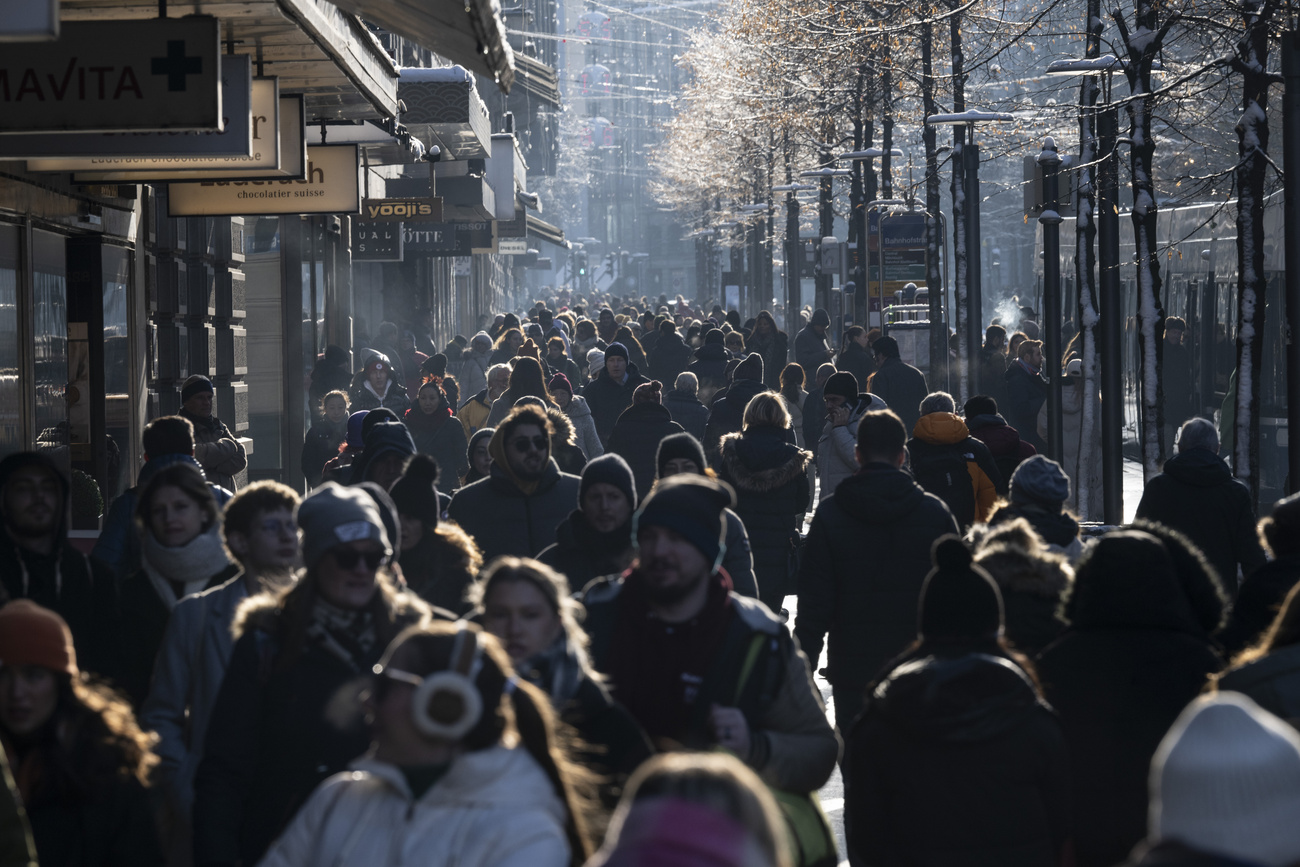
Switzerland to witness Saturday partial eclipse of the sun

The Swiss skies will witness a very special spectacle on Saturday: a partial eclipse of the sun.
+Get the most important news from Switzerland in your inbox
At around 11:20am, the moon will begin to move in front of the sun. However, it will not hide the sun completely.
The eclipse will begin slightly earlier in the west of Switzerland than in the east. While part of the solar disc will be covered by the new moon from 11:14am in Geneva, the eclipse will not begin until 11:22am in Chur.
In Bern, the sun will be covered from 11:17am, in Basel from 11:18am and in Zurich from 11:20am.
Just a few minutes after the first contact with the lunar disc, it will look as if someone has bitten the sun in the top right-hand corner. Depending on the location, maximum darkness will be reached between 12:02 and 12:07pm. Around one sixth of the sun will be covered.
The moon will then retreat towards the top of the solar disc. Around 90 minutes after the start of the event, the partial eclipse will be over.
Don’t look directly at sun
Astronomers are urging caution: anyone wishing to observe the spectacle should never look directly at the sun without protection, writes the Swiss Astronomical Society (SAG) in an information brochure.
There are around two to five eclipses a year in the world, but they are only visible from a small part of the globe. We will have to wait a little longer before we can observe a total eclipse from Switzerland.
The next one will take place on September 3, 2081. Saturday’s partial eclipse will be the 17th of the 21st century and the first this year.
Translated from French by DeepL/mga
This news story has been written and carefully fact-checked by an external editorial team. At SWI swissinfo.ch we select the most relevant news for an international audience and use automatic translation tools such as DeepL to translate it into English. Providing you with automatically translated news gives us the time to write more in-depth articles.
If you want to know more about how we work, have a look here, if you want to learn more about how we use technology, click here, and if you have feedback on this news story please write to english@swissinfo.ch.

In compliance with the JTI standards
More: SWI swissinfo.ch certified by the Journalism Trust Initiative




























You can find an overview of ongoing debates with our journalists here . Please join us!
If you want to start a conversation about a topic raised in this article or want to report factual errors, email us at english@swissinfo.ch.